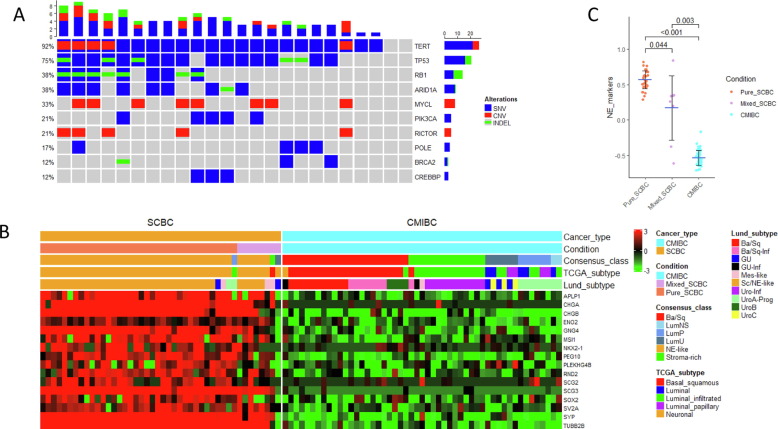Abstract
Small cell/neuroendocrine bladder cancers (SCBCs) are rare and highly aggressive tumors that are associated with poor clinical outcomes. We discovered that lineage-specific transcription factors (ASCL1, NEUROD1, and POU2F3) defined three SCBC molecular subtypes that resemble well-characterized subtypes in small cell lung cancer. The subtypes expressed various levels of neuroendocrine (NE) markers and distinct downstream transcriptional targets. Specifically, the ASCL1 and NEUROD1 subtypes had high NE marker expression and were enriched with different downstream regulators of the NE phenotype (FOXA2 and HES6, respectively). ASCL1 was also associated with the expression of delta‐like ligands that control oncogenic Notch signaling. POU2F3, a master regulator of the NE low subtype, targeted TRPM5, SOX9, and CHAT. We also observed an inverse association between NE marker expression and immune signatures associated with sensitivity to immune checkpoint blockade, and the ASCL1 subtype had distinct targets for clinically available antibody-drug conjugates. These findings provide new insight into molecular heterogeneity in SCBCs with implications for the development of new treatment regimens.
Patient summary
We investigated the levels of different proteins in a specific type of bladder cancer (small cell/neuroendocrine; SCBC). We could identify three distinct subtypes of SCBC with similarity to small cell/neuroendocrine cancers in other tissues. The results may help in identifying new treatment approaches for this type of bladder cancer.
